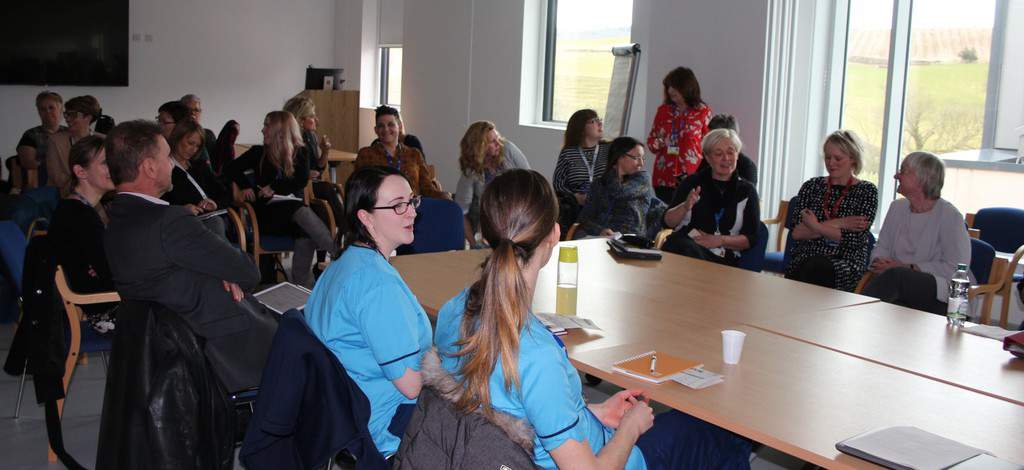A SET of actions is being developed after a successful first workshop in Dumfries and Galloway focused on Realistic Medicine.
Medical professionals and senior managers are now helping to develop a range of initiatives aimed at further promoting a personalised approach to care within the region.
Associate Medical Director Dr Ewan Bell is the clinical lead for Realistic Medicine, and he said: “This was an extremely successful event, bringing together not just medical professionals but a wider group of health and care stakeholders, including the Chief Executive of NHS Dumfries and Galloway.
“Realistic Medicine is a developing field which puts the person receiving health and care at the centre of decision-making, and creates a personalised approach to their care.
“It aims at reducing harm and waste, and simplifying care, while managing the risks and innovations to improve are essential to a well-functioning and sustainable NHS.”
The workshop came before Scotland’s Chief Medical Officer Dr Catherine Calderwood published her third annual last week titled ‘Practising Realistic Medicine’.
Promoting the approach, it notes NHS Dumfries and Galloway as one of five health boards helping to lead the way.
In her report, Dr Calderwood said: “People want to be more involved in decisions about their care, yet they may not know what to ask, or feel that they don’t have ‘permission’ to participate in the decision-making process.
“We must move away from the ‘doctor knows best’ culture and generate supportive environments where people truly feel comfortable asking questions about their care, and can expect clear answers.”
Last September saw a conference focused on Realistic Medicine take place in Dumfries and Galloway.
That helped introduce the concept, with last month’s workshop focused on developing actions to realise the benefits.
Actions are now being developed to incorporate shared decision making at the core of all patient interactions, and moves to ensure a joined-up approach across primary and secondary care, so the patient journey is more streamlined, effective and reliable.
And there will be the creation of communication materials for staff in terms of educational courses/induction programmes, and information for the public, including five ‘Choosing Wisely’ questions that patients will be encouraged to ask those treating them.
These are:
Do I really need this test, treatment or procedure?
What are the risks and side effects?
Can I have this test or treatment at or closer to home?
What could happen if I do nothing?
Do I really need to come back to the clinic?
And a patient questionnaire is to be used to assess individual needs and the improving patient experience.
Dr Bell said: “We’re extremely encouraged by the response we received from the workshop, and the ideas that emerged.
“A lot of work sits ahead of us, but we are convinced of the tangible beneficial outcomes that will be achieved through adopting, promoting and enacting the principles of Realistic Medicine.”





